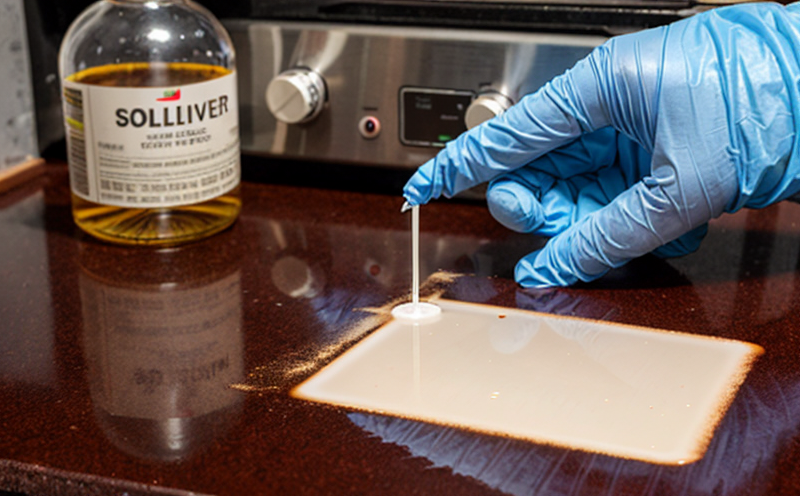Egg Solvent Residue Testing
The testing of solvent residues in eggs is a critical process that ensures food safety and regulatory compliance. Eggs can inadvertently absorb solvents from their environment or during processing, which poses potential health risks to consumers if not managed properly. This service is essential for industries such as pharmaceuticals, cosmetics, and chemical manufacturing where stringent quality control measures are paramount.
Our laboratory uses advanced analytical techniques like gas chromatography-mass spectrometry (GC-MS) and liquid chromatography-tandem mass spectrometry (LC-MS/MS) to detect trace amounts of solvents. These methods provide high sensitivity and specificity, allowing us to identify even minute residues that could be harmful if consumed.
Specimen preparation involves carefully selecting eggs from the batch to be tested. The samples are then cleaned using standardized procedures to ensure no external contaminants interfere with the test results. After cleaning, the eggs undergo extraction processes tailored to remove potential solvent residues without altering their chemical composition significantly. This step is crucial as it ensures accurate and reliable testing outcomes.
Instrumentation plays a pivotal role in this process. Our laboratory employs state-of-the-art analytical equipment that adheres strictly to international standards such as ISO 17025 for calibration and quality assurance. The chosen instruments are capable of detecting solvents at levels below the detection limits specified by regulatory bodies like the European Food Safety Authority (EFSA).
The acceptance criteria for this service are stringent, reflecting our commitment to maintaining high standards of food safety. Eggs failing any part of the testing process must be discarded. This ensures that only eggs free from detectable solvent residues reach consumers.
- Gas Chromatography-Mass Spectrometry (GC-MS)
- Liquid Chromatography-Tandem Mass Spectrometry (LC-MS/MS)
- Infrared Spectroscopy
- Nuclear Magnetic Resonance Spectroscopy (NMR)
Why It Matters
The importance of egg solvent residue testing cannot be overstated. Solvents can have adverse effects on human health, ranging from respiratory issues to more serious conditions like cancer if consumed in significant quantities over time. For industries reliant on eggs for their products, ensuring the absence of solvents is not just a regulatory requirement but also a commitment to public safety.
By conducting rigorous solvent residue testing, we help these companies meet stringent regulations set by agencies worldwide. This includes compliance with EU directives and FDA guidelines, which mandate safe levels of contaminants in food products. Our service ensures that each batch of eggs used in manufacturing processes meets these standards without compromising on quality.
The safety measures implemented during this testing process also contribute to the overall integrity of supply chains within the industry. By detecting and eliminating contaminated batches early in the production cycle, we prevent potential contamination downstream, thus safeguarding both manufacturers' reputations and consumer trust.
Benefits
The benefits of egg solvent residue testing extend beyond mere compliance. By offering this service, we provide a valuable tool for quality assurance teams looking to maintain the highest standards in their operations. Regular testing helps identify any potential issues early on, allowing for corrective actions before they escalate into larger problems.
For R&D engineers involved in developing new products or refining existing ones, our service offers insights into how different processes might affect egg quality and safety. This data can be invaluable when optimizing production methods to enhance both efficiency and product integrity.
In terms of procurement, this testing ensures that only the best quality eggs are sourced for use in manufacturing processes. It eliminates risks associated with sourcing from unreliable suppliers who may cut corners on hygiene practices or use substandard materials.
Environmental and Sustainability Contributions
- Maintaining the integrity of food supply chains reduces waste by ensuring only safe products reach markets.
- Promoting cleaner production methods within industries reliant on eggs helps reduce overall environmental impact.
- Encouraging responsible sourcing practices supports sustainable agricultural practices and biodiversity conservation efforts.





